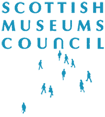
Dedicated attention and funding will revitalise some under-used collections but there are others which never will be useful, which are a constant drain on staff time and resources and are not accessible, nor therefore of interest, to museum users. Museums have a responsibility not to ignore these collections but to assess them formally and take appropriate action. The potentially positive outcome of any disposal ought to drive the decision-making process.
There are a number of other museums agencies and organisations which have published guidance, case studies and reports and can help you with disposal issues.
Guidelines on ‘Disposal’
http://www.museumsassociation.org/13505
are available from the Museums Association website. Produced by the MA Ethics Committee, they aim to help to help museums make decisions about disposals and recommend procedures to follow.
Museums Association ‘Disposal Toolkit’
Following a review of existing ethical guidance on the subject, the MA is proposing to publish a new toolkit to support museums considering disposal and guide them through the process of removing objects from their collections.
The main body of the toolkit will deal with steps that museums should go through for any disposal and advise what to consider at each stage, for example consulting donors and other stakeholders, or when to investigate charity law. It will have appendices with more detailed information for different stages in the process and for different situations or types of collection.
The toolkit will also include information on communicating disposal decisions to the public. For more information see the MA website http://www.museumsassociation.org/14105
Deaccession and Disposal on Collections Link
http://www.collectionslink.org.uk/manage_information/doc_disposal
Created by MDA, Collections Link provides an extensive range of information and guidance on all aspects of collections management, including MLA factsheets on disposal. You can telephone Collections Link for one-to-one advice: T: 0845 838 4000
Norfolk Museums and Archaeology Service (NMAS) Rationalisation Strategy
In 2002, NMAS produced a paper outlining plans to review its collections and, where necessary, to rationalise its holdings in response to Best Value recommendations. A PDF of the NMAS Rationalisation Strategy, which includes information about the ethical framework, collection category codes and access category codes it defined, can be downloaded at http://www.museums.norfolk.gov.uk/default.asp?document=900.020.020
‘Too Much Stuff’?
Published in 2003 by the National Museum Directors' Conference (NMDC) this paper made a notable contribution to the important, but often muted, debate on disposals from museum collections. It recognises that the questions of acquisition and disposal of collections go to the heart of what museums seek to, and are able to, provide. It also reflects the importance of entering the debate on these issues while acknowledging both its complexities and current legal restraints. You can access the document in full at http://www.nationalmuseums.org.uk/de-accessioning.html
